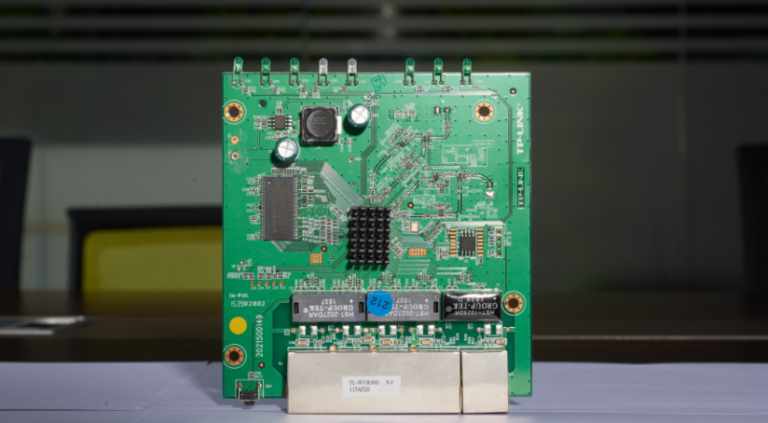Understanding CNC Machining Materials and Their Industrial Applications
Introduction to CNC Machining
Computer Numerical Control (CNC) machining has revolutionized the manufacturing industry by offering precision, efficiency, and versatility. This technology allows manufacturers to produce complex components with minimal human intervention. One crucial factor that directly impacts the performance, cost, and durability of CNC machined parts is the choice of materials. Selecting the right material ensures not only the accuracy of the finished product but also its suitability for specific applications.
Types of CNC Machining Materials
CNC machining materials can be broadly categorized into metals, plastics, and composites. Each category has its own set of properties that determine its compatibility with different machining processes.
Metals
Metals are among the most widely used CNC machining materials due to their strength, durability, and thermal resistance. Common metals used in CNC machining include:
- Aluminum: Lightweight and corrosion-resistant, aluminum is ideal for aerospace, automotive, and electronics components. Its excellent machinability reduces production time and costs.
- Stainless Steel: Known for its strength and resistance to rust, stainless steel is often used in medical devices, food processing equipment, and chemical machinery.
- Brass: With good corrosion resistance and thermal conductivity, brass is suitable for decorative parts, fittings, and electrical components.
- Titanium: Extremely strong yet lightweight, titanium is used in aerospace, medical implants, and high-performance automotive parts.
Plastics
Plastics are popular CNC machining materials when weight reduction, chemical resistance, or electrical insulation is required. Examples include:
- Acrylic: Used for displays, signage, and protective covers due to its clarity and ease of machining.
- Nylon: Known for its wear resistance and strength, nylon is used in gears, bushings, and mechanical parts.
- Polycarbonate: Offers impact resistance and is used in safety equipment, electronics, and lenses.
- Delrin (Acetal): Delrin provides excellent dimensional stability and low friction, making it ideal for precision components.
Composites
Composite materials are engineered CNC machining materials to combine the properties of two or more materials. CNC machining materials in this category are commonly used in aerospace, automotive, and sports industries. Examples include carbon fiber reinforced plastics and fiberglass, which offer high strength-to-weight ratios and excellent resistance to fatigue.
Factors to Consider When Choosing CNC Machining Materials
Selecting appropriate materials for CNC machining requires careful evaluation of various factors. These considerations ensure the final product meets performance and durability requirements.
Mechanical Properties
The strength, hardness, toughness, and elasticity of a material influence how it behaves under stress. Metals like titanium and stainless steel offer high strength, while plastics such as nylon provide flexibility and impact resistance.
Machinability
Not all materials are easy to machine. Machinability affects tool wear, production speed, and surface finish. Aluminum and brass are highly machinable, while harder metals like titanium may require specialized cutting tools and techniques.
Thermal and Chemical Resistance
Applications that involve high temperatures or exposure to chemicals require materials that can withstand harsh environments. Stainless steel and polycarbonate, for instance, are preferred for such conditions due to their excellent thermal and chemical stability.
Cost and Availability
Material selection also depends on budget constraints and availability. While exotic metals like titanium provide superior properties, they are more expensive than commonly used aluminum or steel. Balancing cost with performance is essential for efficient manufacturing.
See also: The Future of Space Technology: Innovations That Could Change Everything
Advantages of Using High-Quality CNC Machining Materials
Investing in high-quality CNC machining materials brings several benefits to manufacturers and end-users.
Improved Precision and Accuracy
Consistent material properties minimize deformation during machining, ensuring that components meet tight tolerances and specifications.
Enhanced Durability
Strong and wear-resistant materials extend the lifespan of machined components, reducing the frequency of replacements and maintenance costs.
Versatility
High-quality materials allow the production of complex geometries and intricate designs that might be impossible with inferior materials.
Cost Efficiency
Though premium materials may have higher upfront costs, their reduced machining time, minimal tool wear, and longer lifespan of finished products make them cost-effective in the long run.
Applications of CNC Machining Materials
CNC machining materials are used across diverse industries, each requiring specific properties for optimal performance.
Aerospace Industry
Lightweight metals such as aluminum and titanium are used for aircraft components, structural parts, and engine components due to their strength-to-weight ratio and durability.
Automotive Industry
CNC machined metals and plastics are employed in engine parts, transmission components, and interior fixtures. High-strength steel and aluminum alloys are commonly chosen to withstand mechanical stress and environmental exposure.
Medical Industry
Biocompatible metals like titanium and surgical-grade stainless steel are used for implants, surgical instruments, and prosthetics. Plastics such as Delrin and polycarbonate are used for medical devices and equipment housings.
Electronics and Technology
Plastics and lightweight metals are ideal for electronic housings, heat sinks, and connectors. Materials with good thermal conductivity and electrical insulation properties are prioritized in this sector.
Future Trends in CNC Machining Materials
The evolution of CNC machining materials continues as industries demand lighter, stronger, and more sustainable options. Emerging trends include:
- Advanced Alloys: Development of alloys with superior strength, corrosion resistance, and machinability.
- Reinforced Composites: Increasing use of carbon fiber and glass fiber composites for high-performance applications.
- Biodegradable Plastics: Growing focus on environmentally friendly plastics that reduce industrial waste.
- Smart Materials: Materials that respond to environmental changes such as temperature or pressure, enhancing the functionality of machined components.
Conclusion
Understanding CNC machining materials is crucial for manufacturers aiming to produce high-quality, durable, and cost-effective components. Metals, plastics, and composites each offer unique properties suitable for specific applications, and choosing the right material ensures optimal performance. As technology advances, the range of available materials continues to expand, providing opportunities for innovation and efficiency in CNC machining. Whether in aerospace, automotive, medical, or electronics industries, the careful selection of materials is a key factor in the success of modern manufacturing.







